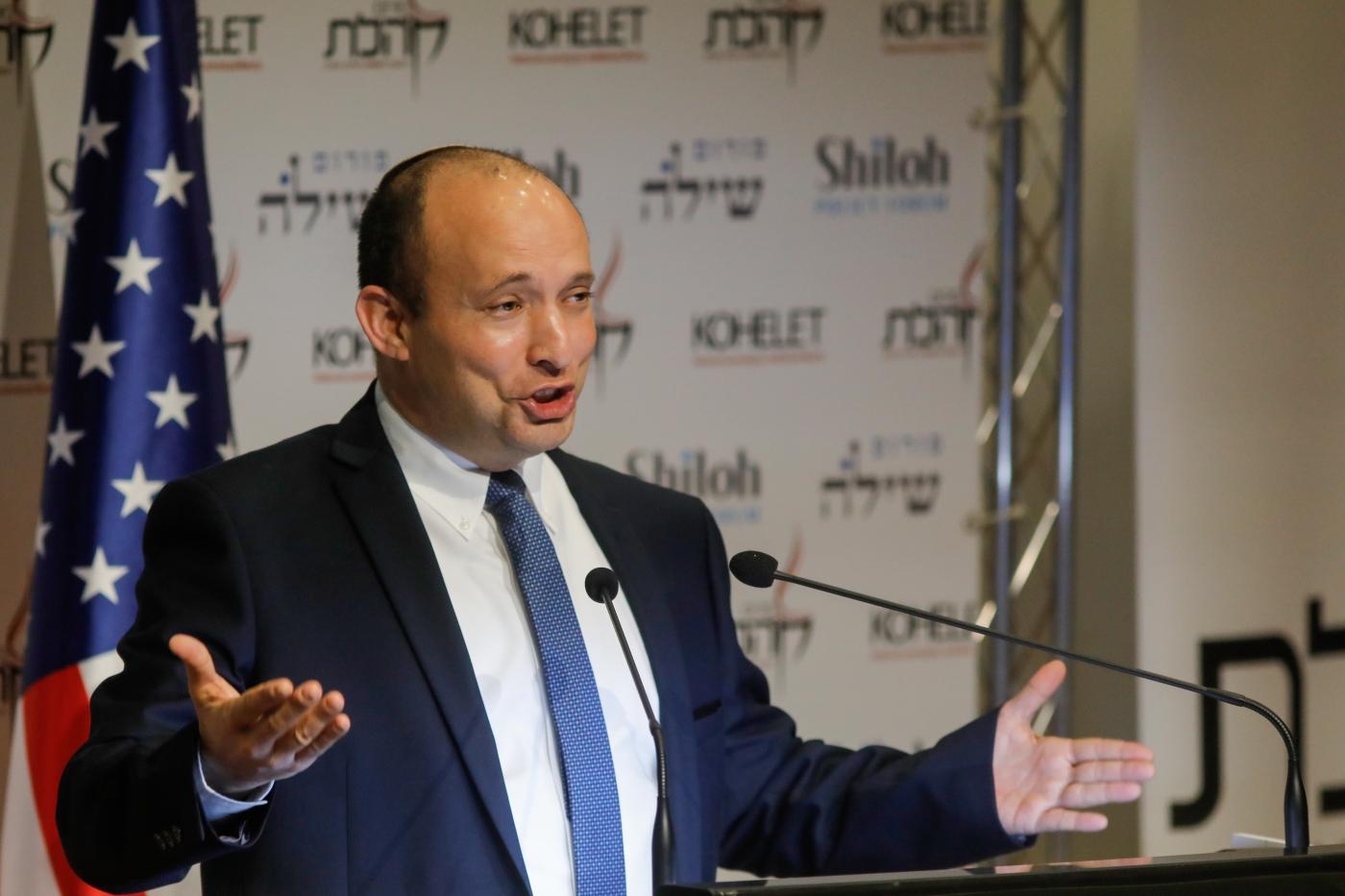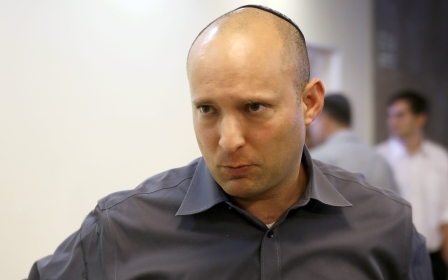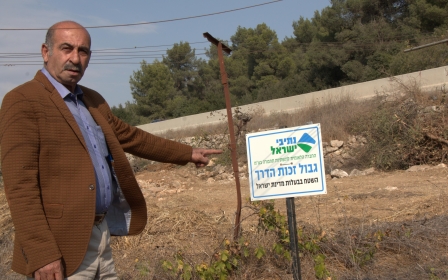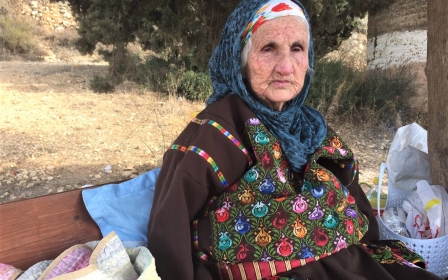Israel's defence minister launches annexation drive with cover from Trump

Naftali Bennett, Israel's defence minister, is pushing through a series of rapid-fire measures to treble the occupied West Bank's settler population and annex all of the territory's Area C, which Palestinians fear could end any hopes of a Palestinian state.
He is doing this, analysts told Middle East Eye, thanks to the political limbo Israel is caught in after two inconclusive elections, and with the tacit blessing that the Trump administration has given Israel's far right.
This week, Bennett, a hawkish ultranationalist, revealed that he was launching a task force to impose Israeli sovereignty over Area C - 61 percent of the West Bank - and grant settlers an unprecedented right to own land privately.
“Our objective is that within a short amount of time, and we will work for it, we will apply Israeli sovereignty to all of Area C, not just the settlements, not just this bloc or another,” Bennett told the Kohelet Policy Forum, a conservative lobby in Jerusalem, on Wednesday.
According to the 1993 Oslo Accords, the West Bank is divided into three areas: Area A, under Palestinian Authority (PA) security and civil control; Area B, where the PA has civilian rule but security remains controlled by Israel; and Area C, which is under full Israeli civil and security control and includes the highly strategic Jordan Valley.
New MEE newsletter: Jerusalem Dispatch
Sign up to get the latest insights and analysis on Israel-Palestine, alongside Turkey Unpacked and other MEE newsletters
Around 25 Palestinian towns and villages and approximately 300,000 Palestinians live in Area C which, like the rest of the West Bank and East Jerusalem, has been occupied by Israel since the 1967 Middle East war.
Around 325,500 Israeli settlers in 125 settlements and outposts, built in contravention to international law, also live in Area C.
Bennett is aiming to increase the number of settlers in Area C to one million by the end of this decade, through increasing building permits for Israeli settlements.
The defence minister's task force is set to allow Jewish settlers to buy land privately and provide “unauthorised” settlers’ outposts and settlements with water and electricity.
This is an unprecedented move.
Currently, settlers in the West Bank have to buy houses from real estate and construction corporations after the approval of the Israeli Civil Administration, a body run by the Israeli military that is responsible for land registration, infrastructure, transportation, water, archaeology and agriculture in the West Bank.
Currently, only Palestinians can buy land privately in the West Bank.
“We are embarking on a real and immediate battle for the future of the land of Israel and the future of Area C,” Bennett said.
Support from Trump
Jamal Juma, the coordinator of the Palestinian Stop the Wall Campaign and the Land Defence Coalition activist groups, told Middle East Eye that Bennett was using Israel's current political limbo to boost his status.
Bennett became defence minister in November and made several aggressive moves against the Palestinians over the following months, including announcing a new settlement in the flashpoint city of Hebron.
US President Donald Trump's clear support for the Israeli settler movement has also emboldened him, Juma said.
“Since Trump came to power, the settlements project got bolder on the ground, and the racial partition was systemised,” he said.
'Annexation is increasing in the Jordan Valley, where a vast amount of palm trees are being planted and settlers are being giving incentives to move and live'
- Jamal Juma, activist
Juma added that Israel was trying to use the Trump administration to “get an international legitimacy” for its attempts to annex East Jerusalem, the Jordan Valley and the Syrian Golan Heights, as well as its settlement and road construction projects in the West Bank.
“Annexation is increasing in the Jordan Valley, where a vast amount of palm trees are being planted and settlers are being giving incentives to move and live,” Juma said.
All of that was being supported by evicting Palestinians from their homes and limiting their ability to build by not granting them building permits, he said.
Tom Mahager, an Israeli political analyst, told MEE that Israel was living in a period where it had no effective opposition or deterrent to force the government to respect international law.
“Instead, we have a desperate prime minister [Benjamin Netanyahu] who is willing to do everything to run away from his legal case and cling onto authority.”
Mahager said that Bennett’s mentality stems from a Zionist belief, stretching back before the establishment of Israel in 1948, that there must be “maximum land for Jewish Israelis with minimum Palestinians”.
“Bennett is also trying also to use his time as defence minister to satisfy his voters, many of whom are settlers. He is also trying to score as many points as he can to secure his political future,” Mahager said.
In December, Bennett asked the military to stop Palestinians from "taking over" Area C in the West Bank and crack down on construction there.
The move, Bennett reportedly said, would stop what he called the "Palestinian-European control" of Area C.
Middle East Eye delivers independent and unrivalled coverage and analysis of the Middle East, North Africa and beyond. To learn more about republishing this content and the associated fees, please fill out this form. More about MEE can be found here.





